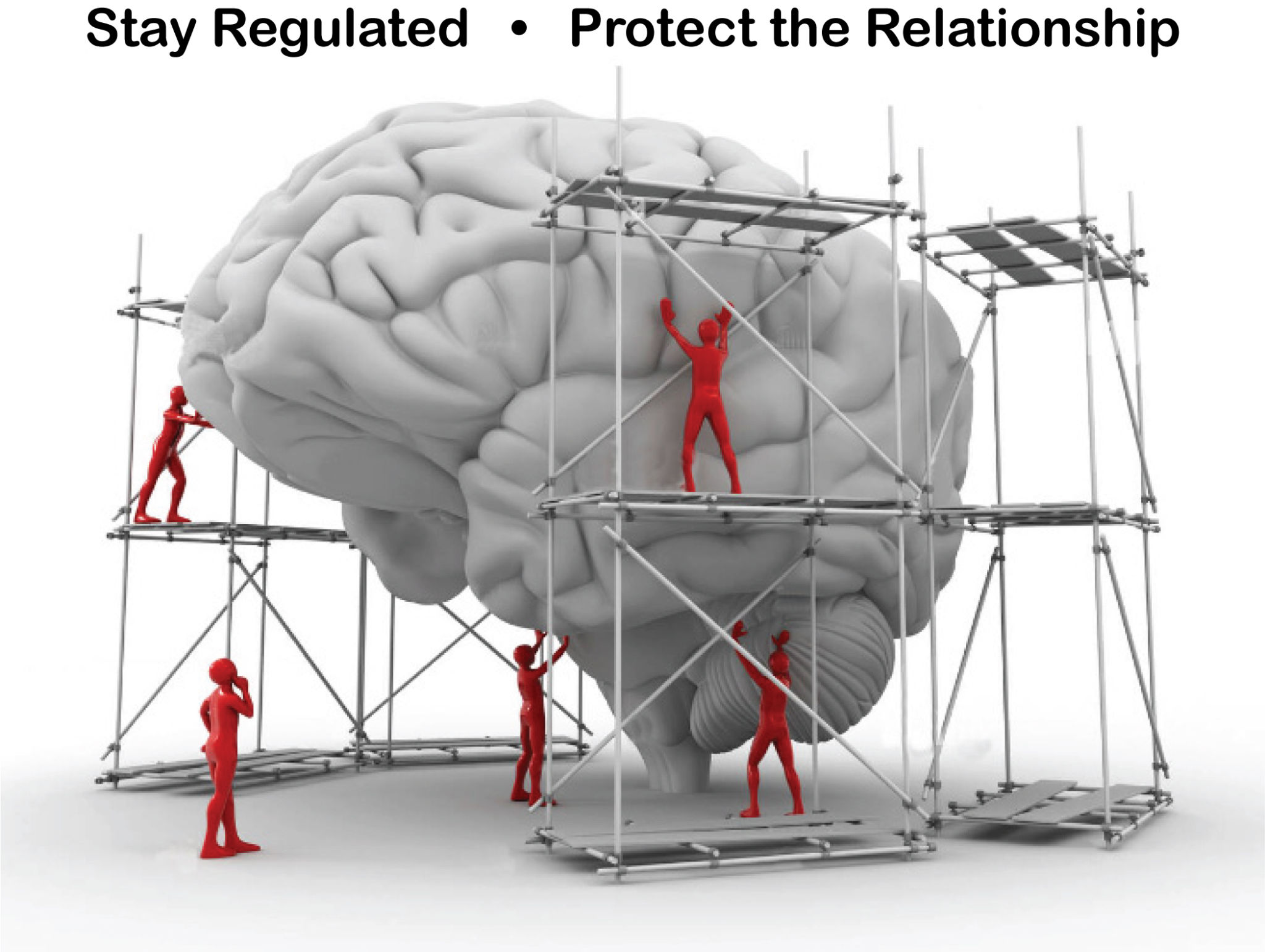
Attachment, Regulation, and Competency, or ARC, is an evidence-based therapeutic approach that aligns with the mission of Northwest Passage. ARC’s goal is to support children, adolescents, and families to increase resilience and hope for the future while creating a narrative of strength and healing.
ARC’s key concepts come from developing a base of knowledge in four areas; normal child development, traumatic stress, attachment, and resilience. While ARC was specifically designed to work with youth who have experienced chronic trauma, the core targets will benefit any child whose nervous system has been overwhelmed by the environment. ARC focuses on building safe caregiver systems, supporting youth regulation, and supporting the building of resilience over time. There are 8 core objectives of the intervention:
- Caregiver Affect Management: Support adult caregivers in understanding and managing their own responses to youth in their care.
- Attunement: Build caregiver capacity to effectively understand and respond to the needs driving youth behaviors.
- Consistent Response: Support effective responses to youth behavior that are trauma-informed (supported by neuropsychological understanding!) and that increase, rather than decrease safety.
- Increase Self-Awareness: Build child/adolescent understanding of emotional and physiological experience, including a language for experience and an ability to connect and contextualize emotional cues.
- Increase Modulation Skills: Build child/adolescent ability to effectively manage and tolerate emotional and physiological experiences.
- Support Child Relational Engagement: Build child/adolescent ability to effectively share internal experiences with others and sustain relational connections.
- Effective Functions: Support children/adolescents in recognizing choice points, managing impulsive behaviors, and actively making choices.
- Self and Identity: Support development of developmentally appropriate understanding of self, including unique characteristics and influences.
- Trauma Experience Integration: Support youth in reflecting upon, processing, and developing a narrative of traumatic experience, and integrating this into a coherent and comprehensive understanding of self.
This approach drives us to ask the following questions when examining the behaviors of youth in our program and helps push us to ensure that we stay regulated and protect the relationship.
-
- Are they causing trouble or having trouble?
- Are we understanding or reacting?
- Are we aligning or commanding?
ARC QUICK FACTS
- ARC’s foundation is built upon four key areas of study: normative childhood development, traumatic stress, attachment, and risk and resilience.
- ARC is designed as both an individual clinical intervention for youth and families and as an organizational framework to be used to support trauma-informed care.
- ARC focuses on Attachment to strengthen the caregiving system surrounding the child through enhancing supports, skills, and relational resources for adult caregivers; Regulation to develop youth awareness and skill in identifying, understanding, tolerating, and managing internal experiences; and Competency through the use of choice and empowerment to increase core resilience.
